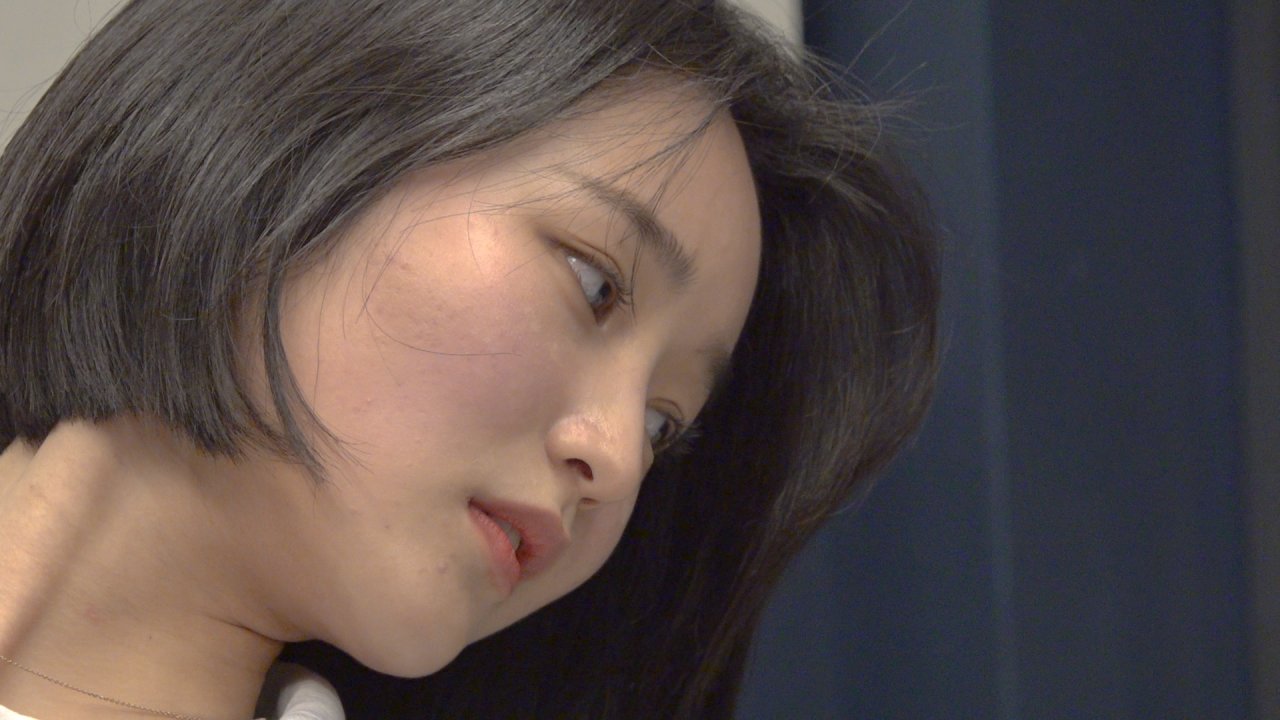BUCHEON, Gyeonggi Province – Now in its 27th year, the Bucheon International Fantastic Film Festival has long held a special place in the hearts of film buffs for the unique experiences it provides – sometimes gruesome, sometimes strange, always different.
This year’s festival opened June 29 with Ari Aster’s “Beau is Not Afraid,” and runs for 11 days, presenting 262 films from 51 countries – 109 of which are making their world or international premiere at the festival. Of particular interest in competition is the Korean Fantastic: Features section, where 10 films showcase the wide range of the country’s genre cinema.
 |
"Risk Society" (BIFAN) |
The first to make its world premiere Friday was Kim Byung-jin’s “Risk Society,” which displays the depths even “ordinary” addiction can lead to, compounded by the desperation inherent in a capitalistic society even for those pursuing modest dreams.
The film opens in modern day, where Yung-gil is a middle-aged driver on call at night. Economic news broadcasts blare with tales of cryptocurrency soaring nearly tenfold in the last year, and a stock index at an all-time high.
The bulk of the events take place 20 years earlier, with a Yung-gil whose great dream is to share an apartment overlooking the Han River with the woman he loves. He has found the woman -- a seamstress named Ha-rim -- as well as an apartment on the western edge of Seoul. The deliveryman just needs a bit more for the deposit on the apartment, and begins taking “business trips” to a casino in Gangwon Province, where he bounces between risk and poor judgment -- even pawning the truck he needs for work -- before desperation eventually bleeds into criminality.
As the title implies, “Risk Society” is not the story of Yung-gil alone, but of a societal desperation that innocuously lies beneath the surface. A small bit of solace offered through the film is that “you don’t have to start over -- just start from where you are now.”
 |
"Immortal" (BIFAN) |
“Screens within screens” is a recurring motif this year, an acknowledgement of the ways in which we constantly surround ourselves with cameras, smartphones and media in many forms. One among the trend is “Immortal,” by Kim Sang-hoon, presented as a documentary by a Japanese crew.
As the film informs viewers, some 70,000 Koreans were affected by the 1945 atomic bombings in Japan, of whom 23,000 returned to Korea after the war ended. Soon after, roughly 80 children who were born to Korean women who had returned showed signs of greatly delayed aging. Now in present day, these “immortal humans” as they are called, though in their 70s, look like 20-somethings. The fictional documentary centers on Ye-ji, an immortal who works as a model and tries to lead an ordinary life, despite widespread discrimination against her kind.
Without delving too deeply into the historical issues between Korea and Japan, the film presents a fantastical situation with a basis in the colonial past as a means to express frictions on who is to blame, and who the victims are even so many years later.
 |
"Abroad" (BIFAN) |
“Abroad” is a “Korean American film” shot with Korean lead actors in Minnesota by New York-based, Italian-born filmmaker Giovanni Fumu. As the director explained to the audience after its world premiere Friday, “I wanted to make a movie about a foreigner being in a foreign land -- similar to my life.”
Tae-min and Min-ji are traveling to rural northern Minnesota with hopes to see the northern lights. After a rough journey to their remote cabin leads to bickering and threatens the romantic mood, Min-ji goes missing. The journey of Tae-min, who speaks barely any English, to find Min-ji takes the audience on a mystery thriller with the disorientation of navigating a foreign space amped up to the highest degree.
Unlikely coincidences can at first be understood as due to Tae-min’s lack of familiarity, but they build and twist to create a sinister feeling that evades logic or easy explanation, while excellent pacing and expertly shot scenes drive up the tension.
 |
"2035" (BIFAN) |
Another in the faux nonfiction format, “2035” uses partially edited and found footage for a documentary commissioned by an American TV network in 2035 to mark the 10th anniversary of events that led to the reunification of Korea.
The audience can revel first in the fantasy of reunification with a sequence explaining the history of how joint efforts to fight a massive forest fire just north of the DMZ led to cross-border goodwill that snowballed into a five-year plan for unification and the election of the first all-Korea president.
The focus of the documentary, however, moves to strange events and lights seen just before the fires. Lasting discord and distrust between the Korean people from either side of the border soon become evident. As the journalists investigate deeper into North Korea at the source, they discover a web of clandestine programs and experiments, as well as deeply buried feelings of division and trauma.
Seven awards, including for best film, director, actors and audience choice, along with corresponding prize money and distribution deals, are up for grabs in the Korean feature competition.
For screening times of the 10 features in the competition and more, visit the BIFAN website, where select films are also available to stream during the festival period.







![[Today’s K-pop] Blackpink’s Jennie, Lisa invited to Coachella as solo acts](http://res.heraldm.com/phpwas/restmb_idxmake.php?idx=644&simg=/content/image/2024/11/21/20241121050099_0.jpg)